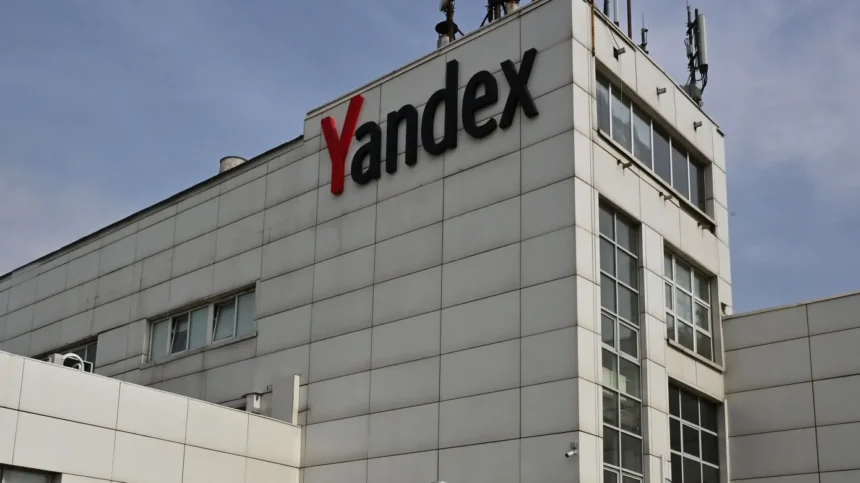Following geopolitical constraints resulting from Russia’s invasion of Ukraine two years ago, Yandex N.V., the Dutch parent company of the eponymous Russian internet giant, is selling the remainder of its remaining Russian operations at a severe discount.
The deal, which will see all of Yandex N.V.’s operations in Russia and a few other nearby markets sold, will be worth about 475 billion rubles ($5.2 billion), or about half of the company’s market capitalization based on the average share price during the three months that ended on January 31, 2024. This discount is the result of a regulation put in place by the Russian government, which states that parent businesses established in nations Russia considers to be “unfriendly” must apply a “mandatory discount” of at least fifty percent to any sales of Russian assets. The Netherlands fits into that “unfriendly” category because it is a part of an EU union that has sanctioned Russia.
“Russia’s Google”
For background, Yandex was established way back in 1997 and gained notoriety as “The Google of Russia” after offering services and products that were mostly comparable to those offered by its American competitors, such as search, e-commerce, advertising, maps, and transportation. Although Yandex’s main market was Russia, the business was also listed as a secondary listing on the Moscow Exchange three years after going public on the Nasdaq in 2011 through a holding company named Yandex N.V. which was established in the Netherlands.
After becoming public in November 2021, Yandex has been operating profitably, with a high market capitalization of $31 billion. But as Russia invaded neighboring Ukraine in the months that followed, Yandex’s shares plummeted, and the Nasdaq temporarily suspended trading before delisting Yandex and a number of other Russian-affiliated businesses in March.
In the present day, it is unsurprising that Yandex N.V., the parent holding firm, is currently divesting itself of any residual assets associated with Russia. In fact, sanctions caused a number of Western businesses to halt operations in Russia, and Yandex founder and CEO Arkady Volozh was fired from the company after his name was added to a list of sanctions imposed by the European Union.
Since then, Yandex has been selling off some of its assets, like as its news service, to a competitor with strong ties to the Russian government. The business also revealed intentions to restructure its corporate structure in an effort to further break away from its Russian heritage. Although it hasn’t happened yet, Yandex had previously stated that it would rebrand its Dutch holding company. However, Yandex N.V. has announced that it will no longer use the Yandex brand when this acquisition closes, as that would be retained by the new Russian owners.
In a press statement, Yandex stated, “We anticipate that our international businesses will develop their own branding going forward.” “In due course, we intend to request shareholder approval to change YNV’s legal name.”
Partnership
In detail, the deal stipulates that Yandex N.V. will get “at least” 230 billion rubles ($2.5 billion) in cash. This amount will be paid in Chinese Yuan (CNH), most likely due to the buyers’ inability to transact in dollars or euros. The buyers are all headquartered in Russia.
The buyers, according to Yandex, will be a group headed by executives from Yandex’s Russian companies. They will contribute a portion of the acquisition funds through a special purpose limited liability company known as “FMP.” Additional investors include “Infinity Management,” a venture capitalist and entrepreneur; “IT.Elaboration,” a special purpose joint stock company owned by Pavel Prass, CEO of investment manager Infinitum Asset Services; “Meridian-Servis,” a special purpose limited liability company owned by businessman and former politician Alexander Ryazanov; and an entity called Argonaut, which Yandex claims is a closed-end mutual investment combined fund owned by Russian oil company PJSC Lukoil.
Remarkably, the companies Yandex N.V. is selling account for “more than 95%” of the Yandex Group’s revenue in the first nine months of 2023, as well as nearly the same percentage of all of its assets and workforce. In other words, after this deal is complete, Yandex N.V. will be substantially smaller; its “non-Russian assets” will consist of four startup technology companies. These include the ed-tech platform TripleTen, the generative AI and LLM business Toloka AI, the autonomous car company Avride, and the AI cloud platform Nebius AI.
In addition, Yandex N.V. will continue to possess a data center in Finland and a few other interests in different tech firms.
The acquisition is expected to occur in two phases. The first, Yandex N.V. will sell a 68 percent ownership in the Russian operations in the first half of 2024 for a combination of cash and shares in the Dutch company. The deal is still pending shareholder and regulatory approval. Within seven weeks of the first stage’s closure, the second portion is anticipated to close.
According to the corporation, a portion of the cash generated from the sale will be used to grow the surviving businesses and provide a return to the shareholders.
“Our staff and the Yandex group have encountered extraordinary obstacles since February 2022. According to a press release from Yandex N.V. chairman John Boynton, “We think we have found the best possible solution for our shareholders, our teams, and our users in these extraordinary circumstances.” “The proposed transaction will unlock new growth potential for the international businesses we will retain, allow the divested businesses to operate under new ownership, and allow shareholders to recover some value for the businesses that we are divesting.”









